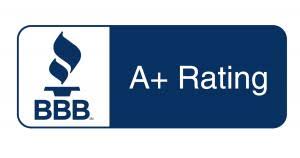Chapter 7 Bankruptcy Lawyers in Buffalo, Rochester and all WNY
Chapter 7 Bankruptcy will help you eliminate your credit card debt, medical bills, loans and other debts
Chapter 7 bankruptcy will relieve the stress you are feeling if you owe more debt than you can afford to pay. Chapter 7 is the most common form of bankruptcy filed by our Buffalo and Rochester clients because it completely eliminates debts such as credit cards, medical bills, utility bills, loans, and most other unsecured debts. It will also stop wage garnishments, lawsuits, collection phone calls, and creditor harassment. The Chapter 7 bankruptcy process is very simple for most people.For about 90% of basic consumer cases, our fees are between $795-1075 (plus government filing fees).
Chapter 7 bankruptcy is sometimes referred to as a “liquidation bankruptcy.” This misleading term unfortunately has the effect of scaring people into believing that all their assets will be liquidated and sold if they file Chapter 7. This is absolutely not true. In reality, only a very small percentage of clients are forced to give up any assets when they file Chapter 7 bankruptcy, and in most cases, these clients are happy to turn over non-essential assets (like a boat or jetski) in exchange for the discharge of significant debts. Also, we believe that our protection rate of client assets is much better than the average because of the diligence utilized by our office in spotting potential problem cases ahead of time and giving our clients accurate advice on pre-bankruptcy exemption planning.
Chapter 7 Bankruptcy Procedure
The Chapter 7 process in Western New York is starting by filing a bankruptcy petition with the Court (either in Buffalo or Rochester, depending on your county of residence). As soon as the petition is filed, your creditors must to stop all collection activity against you. This means creditors cannot call you, send you bills, sue you, garnish your wages, or harass you in any way. It is illegal for them to do so, and in almost all cases, creditors willingly cease collection efforts because they can be held in contempt of court and fined if they do not.
If you have a car loan, mortgage or other collateralized loan, you will continue to pay it as you did before the bankruptcy. However, in Chapter 7 bankruptcy, you have the right to give up any property that you do not want to pay for any more, and by doing so, you will eliminate any remaining liability on the collateralized loan.
Approximately one month after the bankruptcy filing, you will have to attend a short administrative hearing conducted by a Chapter 7 Trustee. The Trustee is not a judge and has no independent judicial powers. He is simply an appointed representative of your creditors, and it is his job to review your bankruptcy case to determine if you have any non-exempt assets that may be available to pay creditors or if you have too much income to qualify for Chapter 7 (this is rarely a problem because most people who have significant non-exempt assets or who have enough income to pay their debts generally do not want to file bankruptcy). In most cases, the Trustee will simply ask you a few questions, review a few documents (such as tax returns and car titles) and then close the hearing. The average hearing lasts no more than 10 minutes and you will, of course, be represented by a bankruptcy attorney from our office to make sure the hearing goes as smoothly as possible.
Chapter 7 Bankruptcy Protects Most Assets
Most assets owned by people who file bankruptcy are completely protected from creditors due to the very fair New York bankruptcy exemptions. Exempt assets include real estate equity, automobile equity, bank accounts, pensions, and home furnishings. Although there are dollar caps to the exemptions, very few people ever approach these caps. For those few clients that do have to give up assets (such as recreational items), they do so willingly because, for the most part, they know before their case is filed that some of their assets may not be exempt. The average value of assets turned over by such clients is approximately $2,000. Compare this to the average debt of $20,000 or more that they are discharging, and you can see that even this “unlucky” 5% of our clients are far better off after filing bankruptcy. In only the smallest fraction of cases do clients ever lose any asset they really want to keep. This is because we can almost always negotiate satisfactory deals with the Chapter 7 Trustee to protect and redeem your assets. Also, there are very often strategies that can be implemented prior to the bankruptcy filing to minimize the risk of surrendering assets. Only the best chapter bankruptcy attorneys are familiar with these strategies.
Chapter 7 Discharges Most Debts
Assuming there are no objections filed in your case (which is very unlikely if your case is prepared properly), you will receive a formal bankruptcy discharge approximately two months after the administrative hearing. Your bankruptcy case is then closed, and the creditors covered by your bankruptcy can never again attempt to collect their debts against you no matter how much money you make in the future or what assets you acquire. There are some categories of debts that are not dischargeable. The most common of these are student loans, child support, alimony, certain taxes, and debts incurred by fraud. If there are any debts in your case that are not dischargeable, we will let you know before your case is filed.







